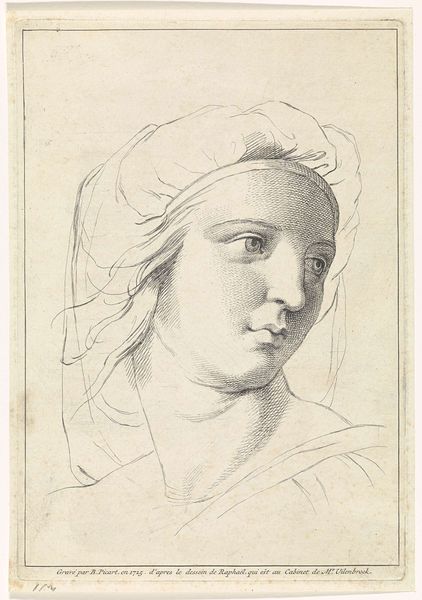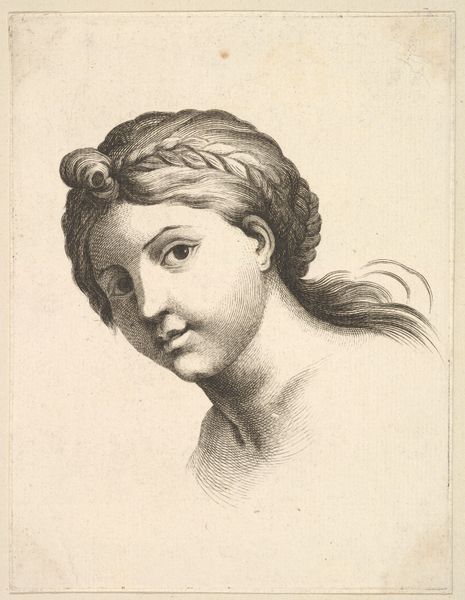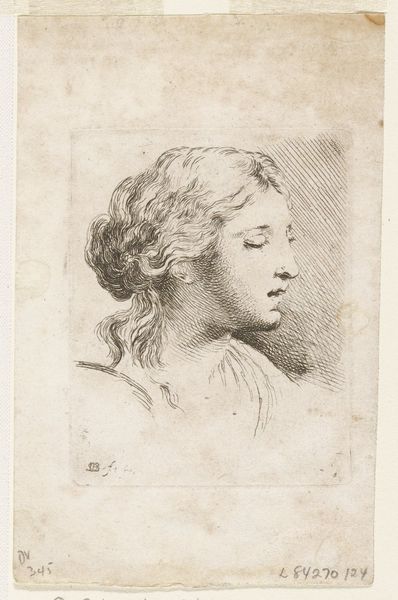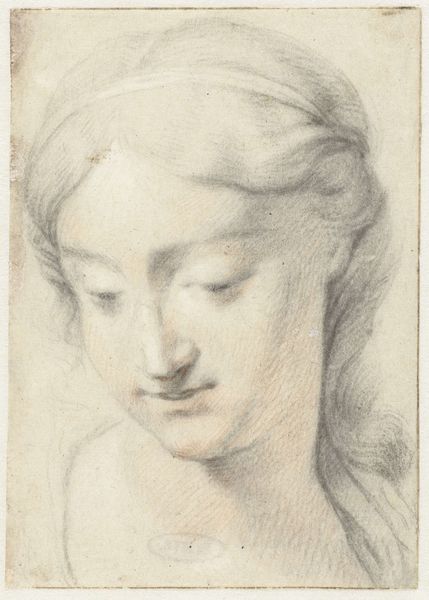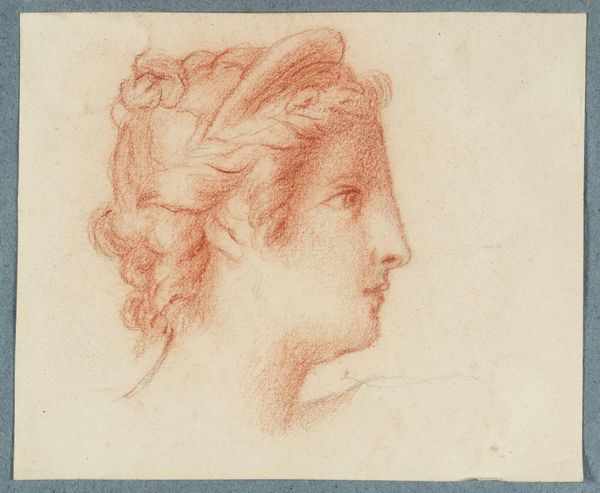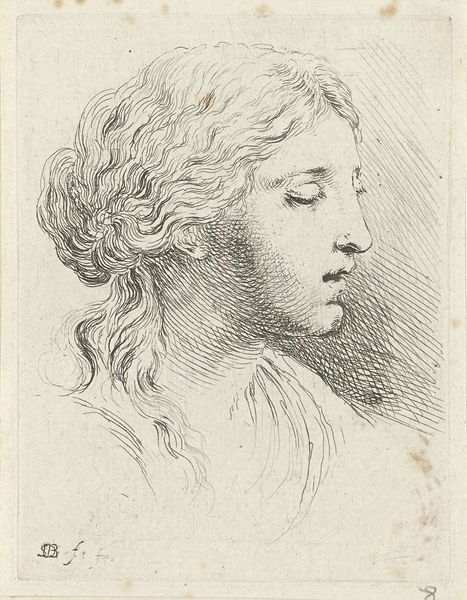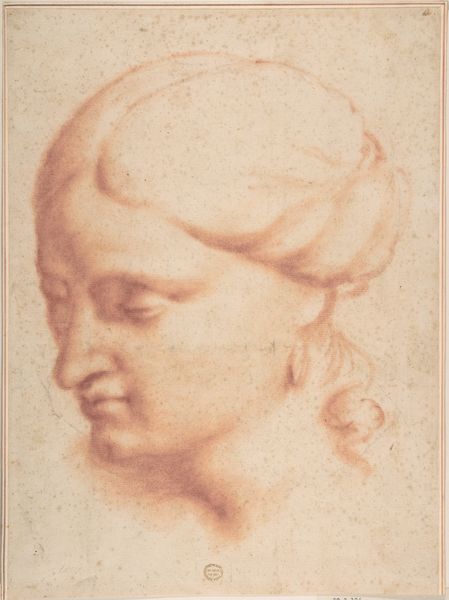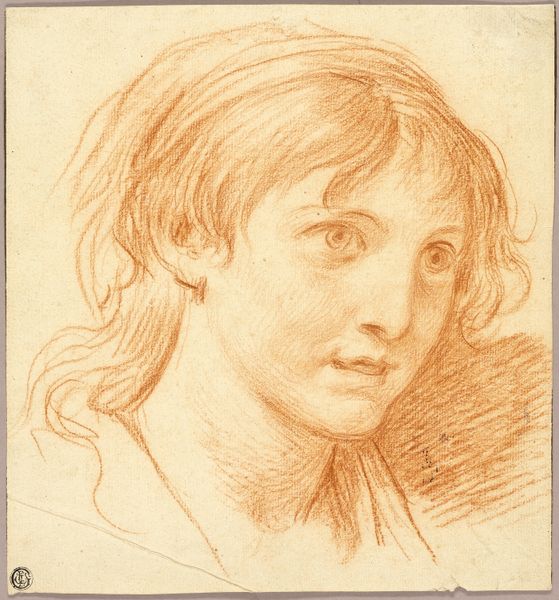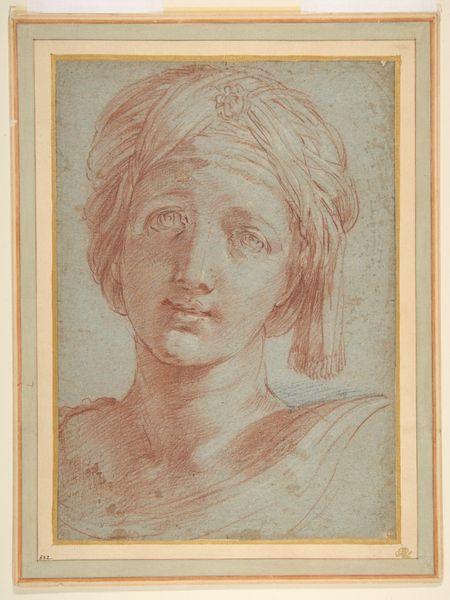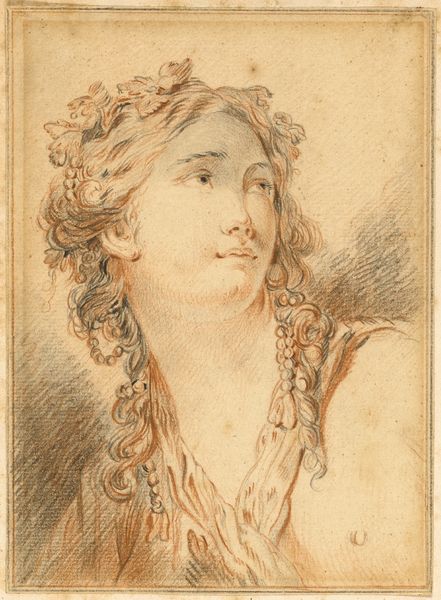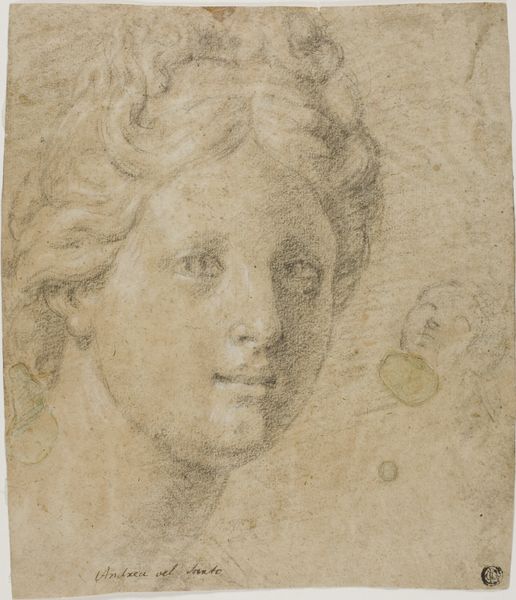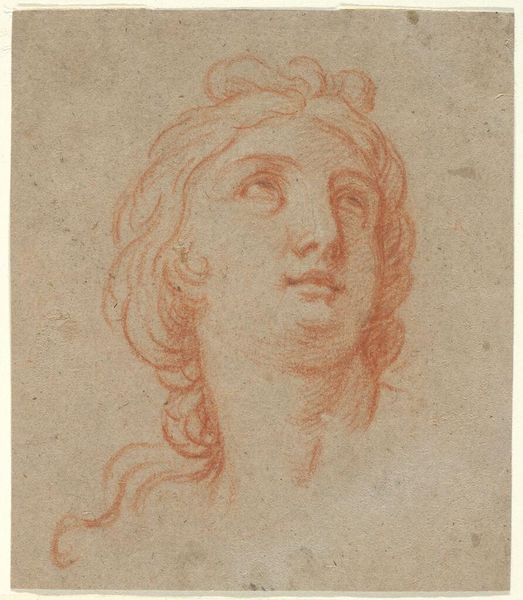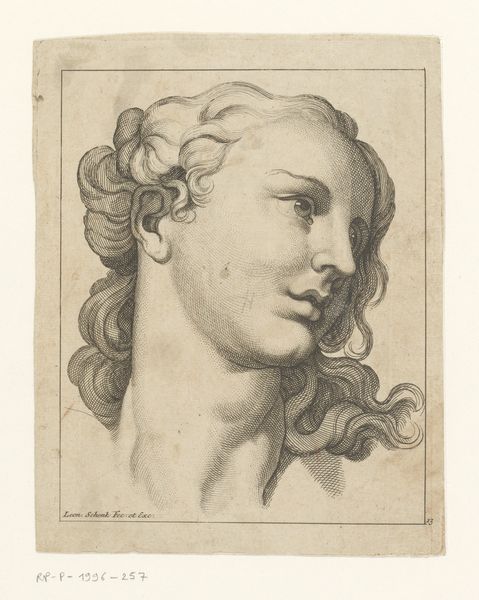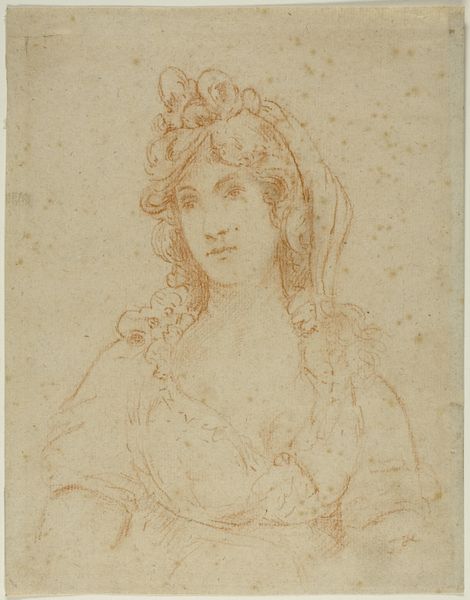
drawing, red-chalk, charcoal
#
portrait
#
drawing
#
baroque
#
red-chalk
#
charcoal drawing
#
figuration
#
portrait drawing
#
charcoal
#
academic-art
Dimensions: 16 1/2 x 10 7/8 in. (41.91 x 27.62 cm) (mount)2 1/2 x 2 3/16 in. (6.35 x 5.56 cm) (d (H.85))
Copyright: Public Domain
Cesare Rossetti rendered this evocative “Head of a Woman” using pen and brown ink with red chalk during the late 16th to early 17th century. Rossetti, an Italian artist, was working within a society that held particular expectations for women, often viewing them through the lenses of chastity and domesticity. Rossetti's intimate portrayal transcends these limitations. The woman's gaze, though soft, meets the viewer with an almost challenging frankness, her expression hinting at an inner life, a story beyond the surface. While the artwork appears traditional in its medium and subject, it subtly disrupts the conventional representation of women. Rossetti's choice to focus on her inner world, rather than idealizing her physical appearance, suggests an alternative narrative. It's as if Rossetti wanted to capture not just her likeness, but also her thoughts, her dreams, her very essence. This drawing, delicate yet bold, invites us to look beyond the surface and contemplate the untold stories of women throughout history.
Comments
minneapolisinstituteofart almost 2 years ago
⋮
This album page, with a group of chalk studies, was put together some time in the 17th century, most likely in Italy judging from the paper. It comes from a larger album that was broken up in the late 1970s and sold at auction. At this sale, four of the studies from this sheet had already been removed, where there are traces of pink adhesive. The album contained many drawings by the great Roman master, the Cavaliere d'Arpino, suggesting that the drawings were collected and brought together by one of Arpino's students. Here the study of the bearded man and the veiled young woman were accepted as autograph works of Arpino the art historian Herwarth Röttgen, one specialist of the artist. Another Arpino expert, Marco Bolzoni, instead recently attributed those two studies to Cesare Rossetti, a member of Arpino's shop.
Join the conversation
Join millions of artists and users on Artera today and experience the ultimate creative platform.
